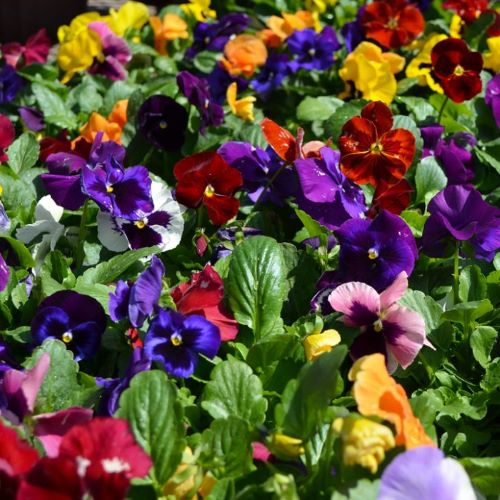
The Short:
- Raking all leaves from you lawn may not be necessary
- Mulching leaves into your lawn can improve lawn health
- Mulching or composting leaves is a more environmentally-friendly solution
As the fall weather approaches, I am thankful for dropping temperatures, lessening humidity, spooky Jack-O-Lanterns, and morning frosts that will knock back those pesky mosquitoes! Fall is a wonderful season to work outside, and there are many tasks to attend to in preparation for winter weather. One task nearly synonymous with the fall season is raking leaves. In years past, I have spent days raking leaves, dragging them off to the woodline on a tarp. However, new research suggests that raking leaves may not be necessary. Here we explore the question, “should I rake leaves off my lawn or not?”

Why do we rake leaves in the first place?
Raking leaves is often necessary to ensure the proper growth of your lawn. In the Midwest, most lawns are made up of cool-weather grasses. These grasses do most of their growing in the fall. While the grasses grow upward in the summer, in the fall they grow downward, meaning that they grow their root systems. Root system growth is essential for weed prevention and a healthy lawn next spring!
If leaves build up on your lawn to the point where you cannot see the grass, then you have a problem. The grass cannot gather the sunlight it needs to grow, and matted leaves can restrict airflow, suffocating the grass. This can cause dead spots and allow fungus to grow in the lawn if left untreated. When this happens, its time to rake those leaves away!
For these reasons, the common knowledge for many years has been that you should make every effort to remove all leaves from your lawn. However, we now know that removing every single leaf is not necessary. We really only need to rake enough leaves to prevent suffocation.
The benefits of leaves left on the lawn
Fallen leaves are organic matter. As they decompose they will return nutrients to the soil. In order to speed this process and prevent lawn suffocation, you should mow the leaves every week or so to reduce them in size. There are special mulching mower blades for this, but we just use our usual mower blades. Smaller bits of leaves will decompose faster and get down into the soil quickly without shading the lawn.
However, if you live in a very shady area, then you still might need to remove some leaves from your lawn. Here’s a good rule of thumb: If your grass is completely covered by a thick layer of leaf matter (you can see no green grass at all), then you need to remove some leaves.
Finally, keep in mind that decomposing leaves are slightly acidic. Over many seasons, this may turn the PH of your soil acidic. It is a good idea to feed your lawn in the Fall with balanced lawn fertilizer. This will improve the health of your lawn, and balance the PH. Leaves break down easily in the compost pile, and do not generate heat as they break down. You can use a pile, or a specially made compost wire cage for this.

For some communities, shredding leaves is better for the environment
In rural communities, we have plenty of space to dump our leaves. Shredding or raking into the woods is both environmentally-friendly options. However, in urban areas, leaf removal is more complicated. Many urban communities bag their leaves in clear plastic bags and have them transported to a landfill. According to EPA data, yard trimmings and leaves make up 6% of all waste sent to landfills in the U.S. While leaves quickly break down in a landfill, the plastic bags that many of us use do not.
If you are sending your leaves to a landfill, we recommend using biodegradable bags, such as these paper ones sold at home depot.
Leaves can be an asset to your lawn and garden
In conclusion, while fallen leaves can cause problems for your lawn if they build up in serious quantities, they can actually benefit your lawn if handled properly. Additionally, you can use fall leaves to mulch around perennials to insulate them against the coming snow. If you purchased perennials from us this year, you want them to keep coming back year after year right? Mulching perennials helps protect their root system and makes it more likely that they will come back next season. Finally, if you do have to send leaves to the landfill, using biodegradable bags is the most environmentally-friendly solution.